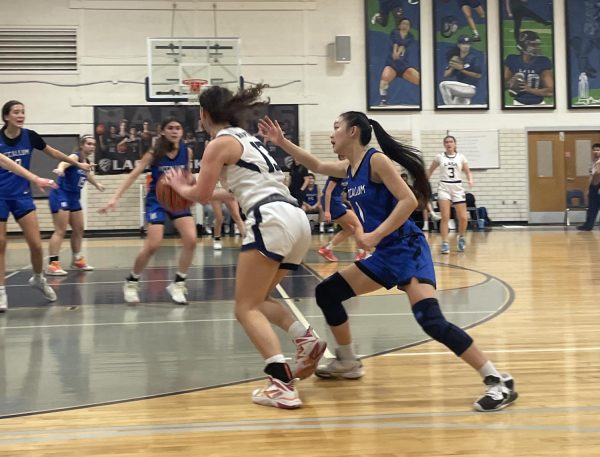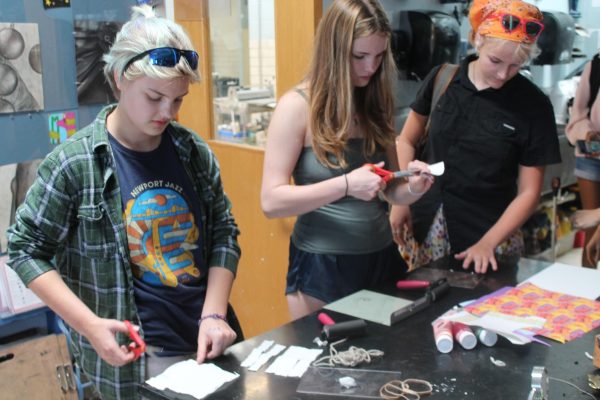Mitigating the Mental Health Crisis
January 5, 2022
The rise of the COVID-19 pandemic contributed to an increased focus on mental health. According to the Centers for Disease Control, 31% of the American population now reports depression or anxiety—double what was typical before 2020. The increase in anxiety and depression in America has affected teens as well. According to The University of Michigan, rates of anxiety and depression in teens have increased by as much as 36% and 31%, respectively.
According to junior Kyra Kleiman, because LASA is a magnet school, some courses may be more rigorous than the average high school. She says that this can create a greater need for mental health support.
“Because it’s a magnet school, we get a lot more work, so I don’t have as much time to be mentally healthy,” Kleiman said. “It definitely negatively affects my mental health because I don’t have a lot of free time to myself or to see my friends, especially with working and sports.”
LASA offers some mental health services including the two wellness counselors on staff. However, some students, including senior Zoe Dell, report not having a lot of information about what wellness counselors do or how they can provide support.
“I know we have our wellness counselors who do the best they can and are helpful,” Dell said, “but I think mental health education at LASA is pretty nonexistent.”
In addition to the wellness counselors, LASA students have advisory periods on most Fridays that teach them about how to practice good mental health. These advisory sessions last 30 to 60 minutes, and contain various activities that educate about and normalize mental health struggles. LASA wellness counselor Olga Alvarado says these advisories are meant to be beneficial tools for students.
“We have advisories where we have been putting out social-emotional learning activities,” Alvarado said. “It’s about knowledge. If students really understand that everybody goes through things that are very stressful and don’t know how to manage it, I think it would be more normalized.”
According to Alvarado, mental health education can help decrease the stigma surrounding mental illness. Some students who struggle with mental health may be too embarrassed to reach out to a counselor if they feel the stigma surrounding mental health is too great.
“People have often thought you can’t be sad, or you can’t be depressed, or you can’t be anxious—‘Just get over it.’ But it doesn’t work that way,” Alvarado said. “I think the stigma attached to that is that many of our students don’t want to be considered weak, or they’ve got to be tough, or they’ve got to be able to navigate it alone.”
According to the Center for Health Care in Schools, schools have become the primary mental health resource for adolescents. 60% of American High Schools offer mental health services, and within that group, roughly 15% of students take advantage of them.
According to students and counselors, many LASA students struggle with mental health issues. Alvarado explained that part of the LASA culture includes an openness around these issues.
“I’ve worked at other campuses, and I think we at LASA do a lot to help each other out,” Alvarado said. “I get a lot of referrals from other students about their friends. So I think that the LASA community is very open to trying and to get support and help.”
Dell explained that LASA students, like most teens, have struggled with mental health. According to the National Alliance on Mental Illness, almost 17% of children between the ages of 6 and 17 have suffered or currently suffer from a mental illness.
“I think the majority of LASA students have some kind of mental health condition,” Dell said. “It’s definitely a big topic at LASA.”
COVID-19 has only exasperated the mental health conditions many students already struggled with. According to a poll done by Michigan Health, 3 in 4 students say COVID-19 has affected their social interactions. 22% of teenagers now struggle with sleep issues or a good sleep schedule, and 14% of parents report that their child is withdrawing from family.
“Adolescence is tough, and I think students that are in high school have a difficult time navigating some life issues,” Alvarado said. “And then when you throw on top of that school and academics and then the rigor of classwork here, not being in school for about a year and a half, it kind of just intensifies. Students don’t really have the coping skills right now because they’re learning how to navigate through life.”
Because of the mental health challenge COVID-19 has presented, schools like LASA now may face even more pressure to educate students on mental health issues and help reduce the stigma surrounding them. Some students like Kleiman are interested in learning more about mental health beyond the advisories LASA already offers.
“I think it would be interesting to learn more about mental health,” Kleiman said. “It’s not something that usually gets covered in our normal classes, but it’s really important.”
LASA wellness counselors say that one of the most important lessons students should learn about mental health is that it’s nothing to be ashamed of. They say that talking to an adult is the right thing to do if you see a friend struggling.
“If you are worried or concerned about a friend, that’s when you need to reach out to an adult,” Alvarado said. “It may be something or it may not be, but at least offering to try to get some help is a step in the right direction.”






